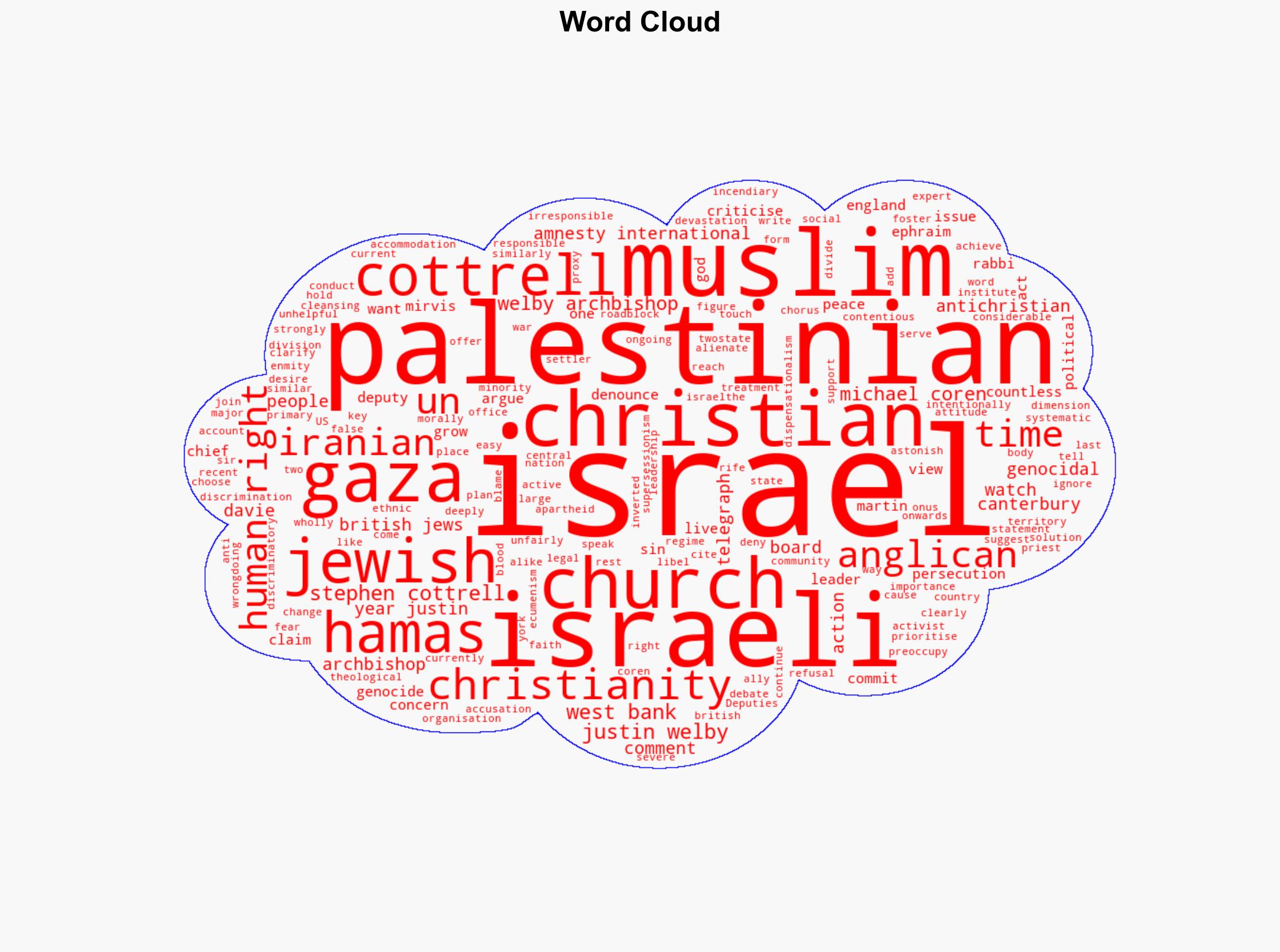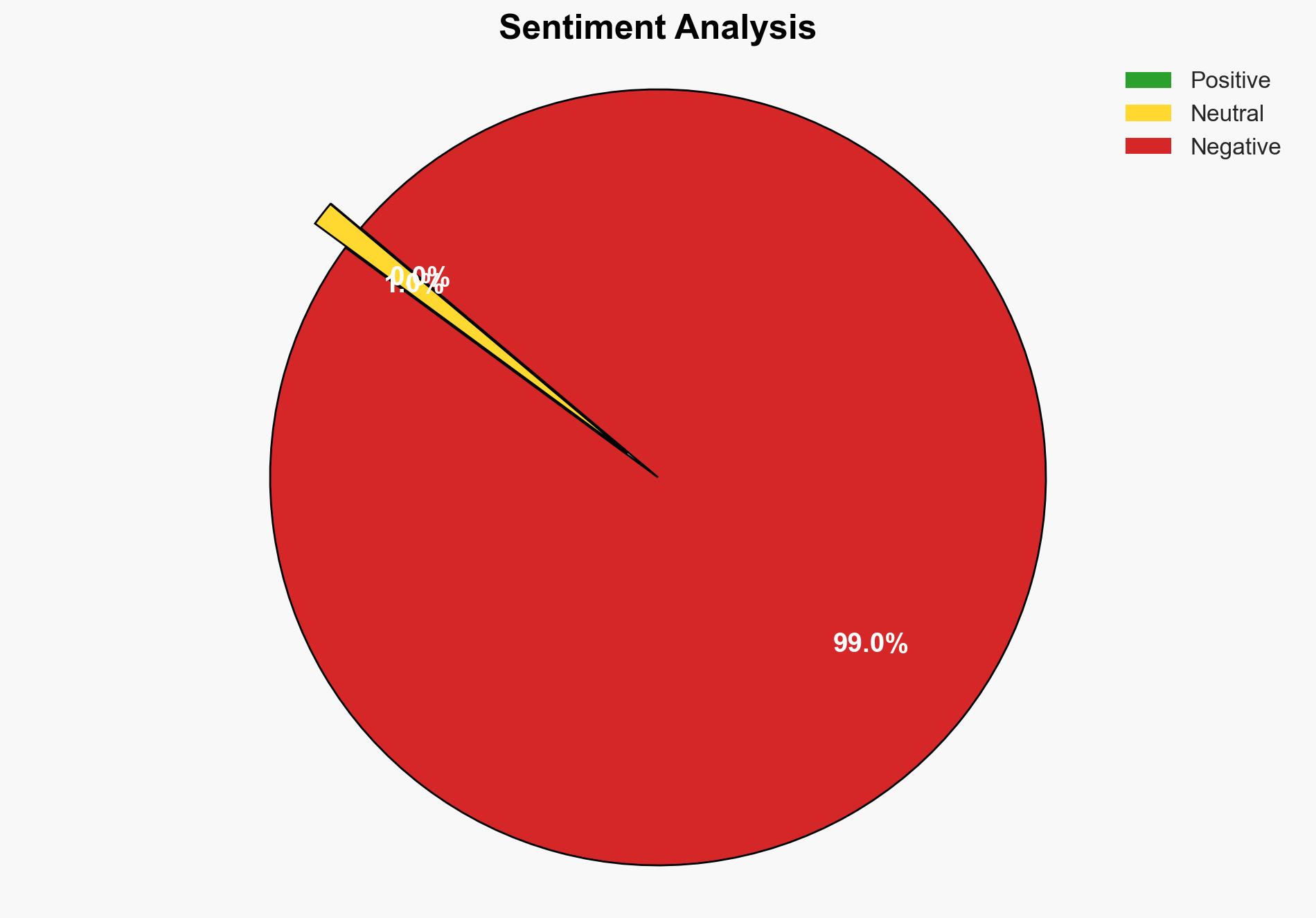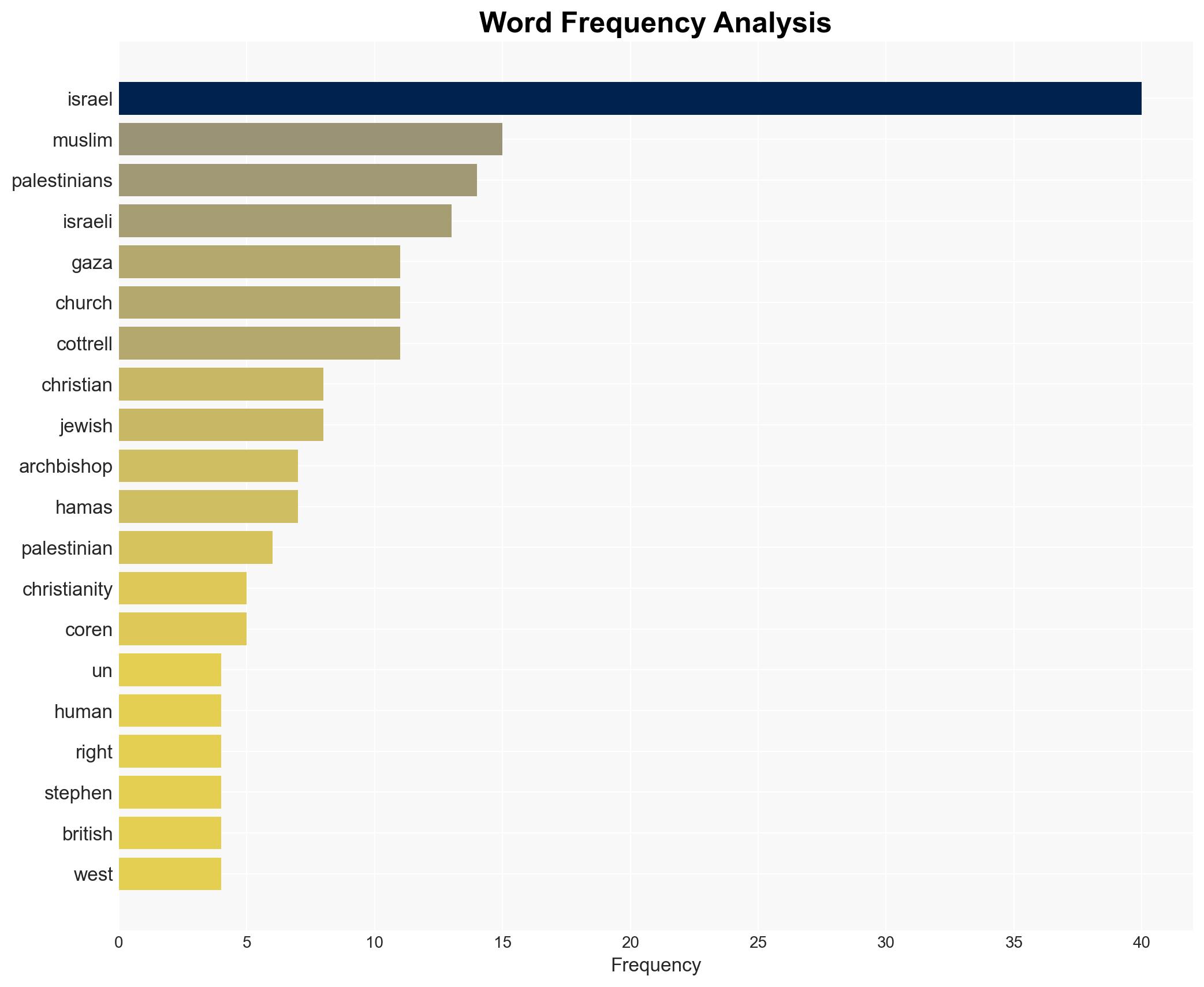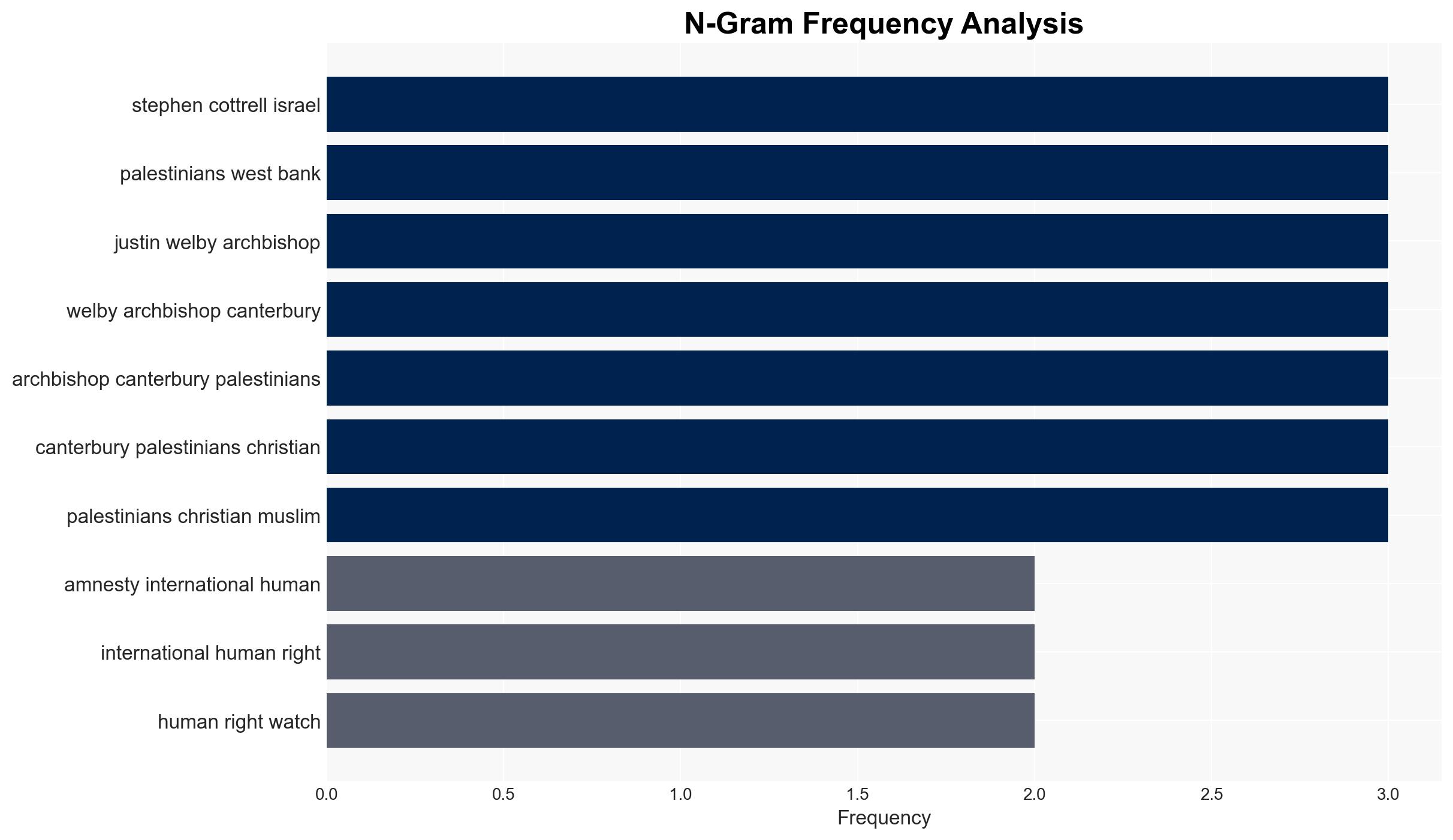Archbishop of York denounces Israel’s ‘genocidal acts’
Published on: 2025-11-25
AI-powered OSINT brief from verified open sources. Automated NLP signal extraction with human verification. See our Methodology and Why WorldWideWatchers.
Intelligence Report:
1. BLUF (Bottom Line Up Front)
The strategic judgment is that the Archbishop of York’s comments are likely to exacerbate tensions between religious communities and could influence international perceptions of the Israeli-Palestinian conflict. The most supported hypothesis is that the Archbishop’s statements are driven by genuine humanitarian concerns but may inadvertently serve as a tool for political agendas. Confidence level: Moderate. Recommended action: Engage in diplomatic dialogue to address concerns and mitigate potential interfaith tensions.
2. Competing Hypotheses
Hypothesis 1: The Archbishop’s statements are primarily motivated by humanitarian concerns and a desire to advocate for the rights of Palestinians.
Hypothesis 2: The Archbishop’s comments are influenced by political agendas, potentially serving as a tool for those seeking to delegitimize Israel.
Hypothesis 1 is more likely given the Archbishop’s historical focus on humanitarian issues and the context of his statements. However, the potential for political exploitation of these comments cannot be dismissed.
3. Key Assumptions and Red Flags
Assumptions include the belief that religious leaders act primarily on moral grounds and that their statements are not politically motivated. Red flags include the potential for misinterpretation or manipulation of the Archbishop’s comments by political entities. Deception indicators are present in the form of biased reporting or selective quoting by media outlets.
4. Implications and Strategic Risks
The Archbishop’s comments could lead to increased tensions between Jewish and Christian communities, both in the UK and internationally. There is a risk of political exploitation by groups seeking to further polarize the Israeli-Palestinian conflict. This could escalate into broader interfaith conflicts or influence diplomatic relations between the UK and Israel.
5. Recommendations and Outlook
- Engage in interfaith dialogues to address concerns and promote understanding between communities.
- Monitor media narratives and counter misinformation to prevent escalation of tensions.
- Best-case scenario: Constructive dialogue leads to improved understanding and reduced tensions.
- Worst-case scenario: Comments are exploited to fuel interfaith conflicts and diplomatic strains.
- Most-likely scenario: Short-term tensions arise, but are managed through diplomatic and interfaith efforts.
6. Key Individuals and Entities
Stephen Cottrell (Archbishop of York), Ephraim Mirvis (Chief Rabbi), Justin Welby (Archbishop of Canterbury), Amnesty International, Human Rights Watch.
7. Thematic Tags
Counter-Terrorism, Interfaith Relations, Human Rights, Israeli-Palestinian Conflict
Structured Analytic Techniques Applied
- ACH 2.0: Reconstruct likely threat actor intentions via hypothesis testing and structured refutation.
- Indicators Development: Track radicalization signals and propaganda patterns to anticipate operational planning.
- Narrative Pattern Analysis: Analyze spread/adaptation of ideological narratives for recruitment/incitement signals.
Explore more:
Counter-Terrorism Briefs ·
Daily Summary ·
Support us





